
-
Lilium, Germany: We make "flying taxi” a reality
update - zeit:2020/5/6
Lilium, Germany: We make "flying taxi” a reality
Have you ever imagined that you could take a "flying taxi" like in a science fiction movie when you are stuck in a traffic jam?
In the film The Fifth Element, the "flying taxi" weaves through the city's skyscrapers; while in Blade Runner, the audience was astonished by the cyberpunk-style smart aircraft. In every sci-fi work, the flying vehicle is emphasized as an icon of the future world.
Lilium, a flying taxi company, based in Munich Germany, is accelerating to make this dream, a reality.
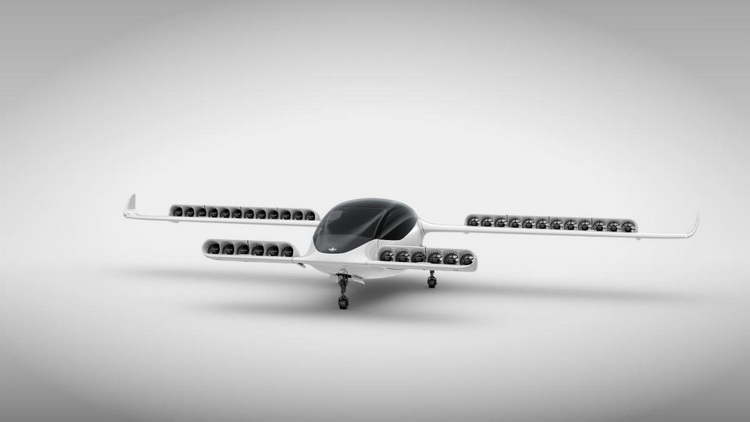
Fulfilling the dream of flying
Since the advent of the automobile, almost every generation has dreamed of putting a car in the air. Eighty years ago, Henry Ford, founder of Ford Motor Company, said, "Mark my words, a combination of an aeroplane and a car is coming." The idea was considered delusional at the time, but decades later, it's no longer fanciful, dozens of companies around the world are working to make it a reality within reach.
Unlike private helicopters owned by the super-rich, "flying taxi", or air taxis, should be public in nature, on-demand, and acceptable to civilians in the future, just like taxis on the roads today.
On March 24, Lilium, a Munich-based flying taxi company, announced that it had closed a new round of funding of more than $240 million, led by China's Tencent Capital and backed by London-based venture capital agency Atomico, European tech investment Freigeist and private banking and asset management group LGT. The company has accumulated more than $340 million in financing.

Founded in 2015, Lilium is an aviation startup that develops and manufactures zero-emission aircraft and provides regional air traffic services. The company is currently developing an all-electric vertical takeoff and landing aircraft for regional air traffic, with commercialization plans before 2025.
The Lilium Air Taxi is an electric vertical takeoff and landing aircraft with a shape inspired by a devilfish in the deep sea, about ten meters long, and an overall structure consisting of a central elliptical egg-shaped cabin, a pair of parallel tilt rotors and 12 flaps, without tail, rudder, propeller and gearbox.
In its latest flight test, each flap carries three electric jet engines, and the Lilium Jet uses rotatable ducted fans that provide vertical thrust as it lifts off. When it reaches sufficient altitude, these fans in turn slowly rotate backwards and propel the nozzle forward.
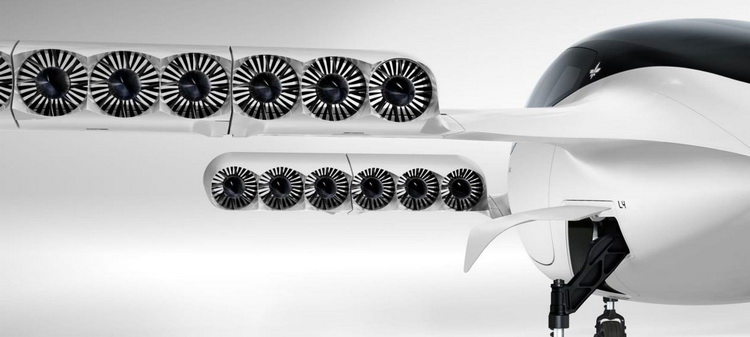
The design of the wings and engines focused on minimizing energy consumption so that they can use existing battery technology. Compared to helicopters of the same size, the Lilium Jet uses only 10 per cent of the energy, compared to the drone, flies ten times the distance.
The 1.5-ton vehicle has a maximum flight speed of 300 km per hour, significantly faster than a helicopter (about 200 km/h). A single charge ensures an hour's flight time, and the Lilium Jet's battery also supports fast charging tech, with a 5-minute quick charge you gain another 70km distance.
Surprisingly, air taxi Lilium jet is not expensive and a daily travel option for the average passenger. The company's founder and CEO, Daniel Wiegand, revealed that it takes just six minutes to fly from JFK International Airport, New York to Manhattan downtown, and four passengers together with the pilot will cost only about $70 each, much cheaper than a private helicopter.

Lilium is pursuing ultimate flight experience, not only faster speed, further distance, cost down, and also quieter circumstances. To avoid the buzzing overhead like in a helicopter, The Lilium team simulated the process of the noise generating and then continuously change the shape of the blades to control the noise level and continually to update the material to absorb the noise.
The fantastic product has achieved numerous awards since its launch, including the prestigious German Red Dot Design Award 2019, Top startups in German 2019, the Global Cleantech 100 Award 2020.

Redefining air regional traffic services
As a young startup, LILIUM has an ambitious: to become not only a manufacturer of flying taxis but also transportation networks and platforms. They plan to operate air transportation services in multiple regions around the world as early as 2025.
Therefore, they plan to build a transportation network for people to travel daily by developing an APP that includes features such as reserved seats, reserved landing and takeoff locations, through which passengers can book flying taxis and combine them with other travel options such as hailing services, public transportation and scooters to ensure that passengers to the final destination.
Because of the vertical takeoff and landing of the LILIUM Air Taxi, there is no need to build traditional flying ground facilities like particular runways, aprons, airports, etc. LILIUM will consolidate existing city facilities and make aprons on top of high buildings or in public parking lots. In Lilium's initial plans, a regional transportation network of 100 routes could be created simply by creating landing sites in 16 cities.
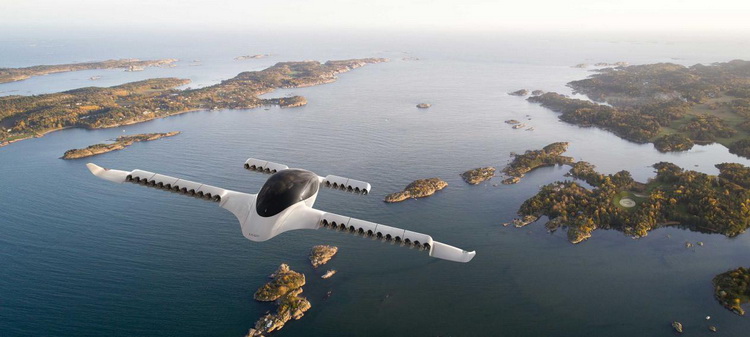
This regional air traffic pattern will completely transform the existing network, helping the passengers to reach directly, 25 times of areas covered and connected. As Remo Gerber, Lilium's Chief Commercial Officer, presented at the 2019 Slush Helsinki Venture Conference, "This is the kind of technology that can really change the difference between the city and the countryside because all it takes is a small empty lot, a few parking spaces. Even if you live in the suburbs, a trip to the city centre is easy and quick. It has really fundamentally changed the way how we use the land and how we plan vacations, in a way that different areas, different groups are connected."

Competition is fierce, and Lilium is always one step ahead.
Lilium, a young company, founded in 2015 by four students from the Technical University of Munich, Daniel Wiegand, Sebastian Born, Patrick Nathen and Matthias Meiner, quickly attracted the attention of the public and venture capital funds. Within a few months of its formation, the company successfully flew a 1:2 prototype and secured $10 million in Series A financing.
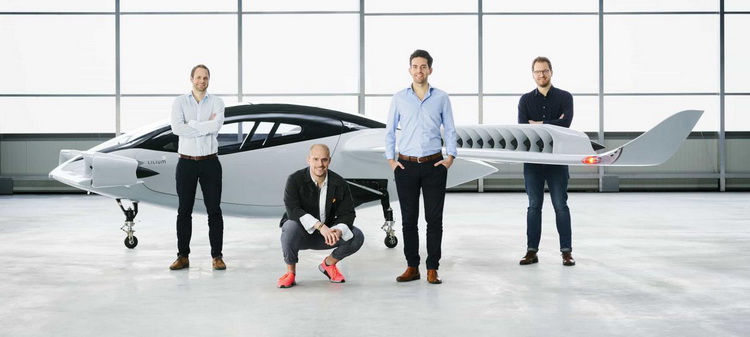
In 2017, Lilium again successfully piloted a 1:1 two-seat version of its prototype and closed a $90 million Series B round led by Tencent. Lilium once again received $240 million funding from Tencent after the successful flight of the 5-person Jet. Now, their goal is to be fully operational by 2025.
To achieve this goal, Lilium's first manufacturing facility was built in southern Germany in October last year, covering approximately 3,000 square meters and boasting world-class manufacturing technology. Not only does the manufacturing facility have the size for full manufacturing, but it also has the top quality for aerospace manufacturing, not only to produce all the essential parts but also to support the whole assembly. Mr Wiegang, the company's founder, asserted that they are planning the second manufacturing plant, two plants will reach their goal of producing several hundred aircraft per year by 2025 when Lilium Jet begins commercial service.
However, Lilium also faces fierce competition in the air taxi market: a study from Morgan Stanley shows that the market for urban self-driving aircraft could be worth $1.5 trillion by 2024. The number of air taxis will reach over 430,000 by 2040.
According to Roland Berger Consultants, more than 100 aerial rental projects have been set up worldwide since 2009, more than 40 new companies added in 2017 alone, including the two giants of the civil aviation industry, Boeing and Airbus, and even large car companies such as Toyota, and Hyundai, and Giant Uber, Siemens. In the competition for future transport, some companies are keen to move forward.
The Volocopter project, backed by giants such as Intel, Durham and Geely, has conducted more than 1,000 test flights to achieve fully automated commercial flight within 5 to 10 years.
It took Boeing less than one year to complete the first tests from design to the prototype of an automated air taxi vehicle.
Airbus is working with Audi to design a flying car that can travel and fly on the road.
Uber's goal is to launch an air taxi service in several cities, including Los Angeles, starting in 2023.
Air taxi startup Kitty Hawk has received approval from the FAA to test its prototype in "non-crowded areas".......
Even the far-away China is participating, in the Greater Bay Area (the Guangdong, Hong Kong, Macao and Shenzhen), many aviation tech companies are joining in the competing, for example, Guangzhou EHang.The southern cities are experiencing the new networks to mix up "air taxi", helicopters, light aircraft, drones and other ferry services.
Mr Daniel Wiegand, president of Lilium, mentioned that several cities had shown great interest in their air taxis. Still, in the initial stages, Lilium wants to take a firm footing and set the bar for operations, starting with two or three cities, with plans to deploy more than 20 flying taxis per city.

In the tight air taxi commercialization track, Lilium is taking tangible and concrete steps to realize its vision. These young and ambitious entrepreneurs in Lilium says, "We believe that regional air traffic has the potential to be an important force for social development and we can't wait for the next development where Lilium will be an industry leader."
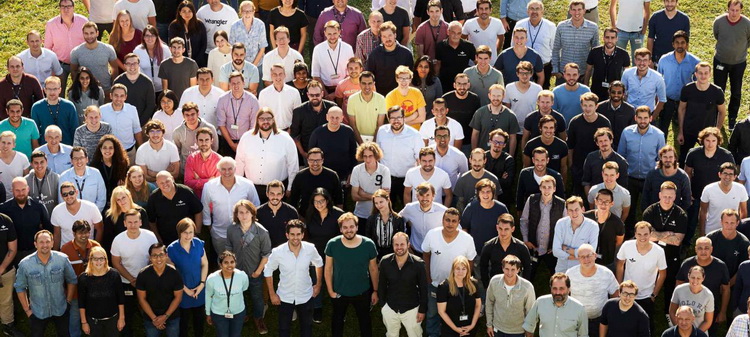
Copyright © 2015 www.reec.top All Rights Reserved